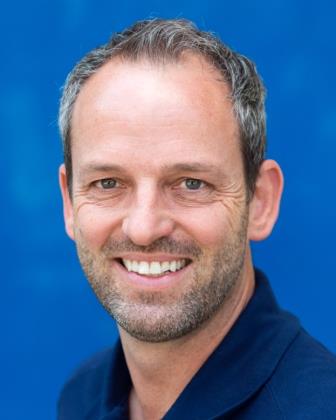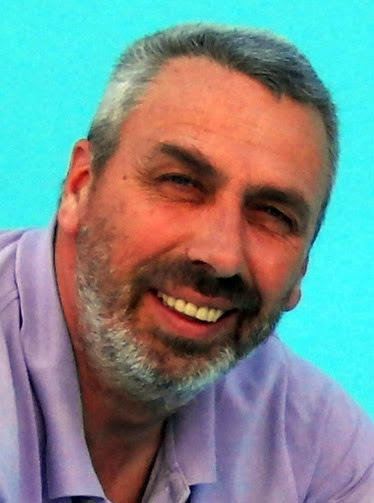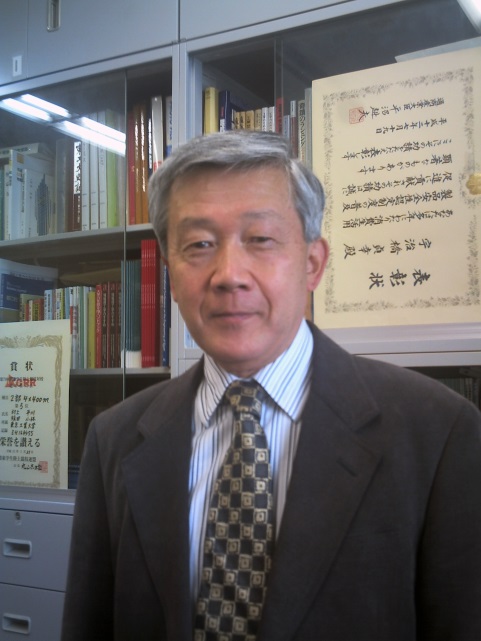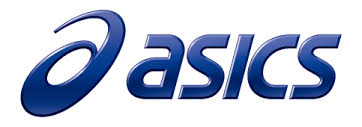Robert Riener, Arend Schwab, Sadayuki Uhijashi, Geurt Jongbloed
| Robert Riener ETH Zurich http://www.sms.hest.ethz.ch/people/directory/rienerr Cybathlon: Promote the Development of User-Centered Assistive Devices Each year millions of people worldwide need assistive and prosthetic devices to master their lives. Unfortunately, current technology is not ideal: wheelchairs cannot climb stairs and orthoses and prostheses lack acceptance due to bulkiness and limitations in function. There is a need to push the development of such devices by pooling the efforts of engineers and medical scientist working closely with patients.
Cybathlon, a series of Olympic-style competitions offers a new approach to advancing assistive devices. It is a championship for athletes with physical disabilities who are using advanced assistive devices including robotic technologies. The athletes compete in teams with scientists and technology providers making the Cybathlon also a competition of companies and laboratories. It includes different disciplines that allow the application of most functional and novel assistive devices that can be prototypes developed by companies or research labs or commercially available products, and will be applied on race tracks designed along daily life challenges. Athletes with complete spinal cord injuries will compete in a bike race with functional electric stimulation devices assisting them to perform pedaling movements. Amputees fitted with actuated exoprosthetic devices and complete spinal cord injury patients with actuated exoskeletons will race in a short obstacle course containing daily life tasks, and actuated exoprosthetic hands and arms will be used to complete a coordination skill task. In the powered wheelchair race pilots will steer around an obstacle course. Brain computer interfaces will be used by pilots to control avatars in a racing game on a computer screen. There are two medals awarded for each discipline, one for the pilot, who is controlling the device, and one for the provider of the device, i.e. the company or the lab. The main goal of the Cybathlon is to provide a platform to the larger public that presents and benchmarks novel assistive technologies facilitating daily life of people with disabilities or physical weaknesses. The Cybathlon wants to encourage the exchange between people with disabilities, the general public and the research and development world and increase the acceptance of assistive devices across different cultures. In the long run, the developed devices should become affordable and functional for the most important activities in daily life. Biography Robert Riener studied Mechanical Engineering at TU München, Germany, and University of Maryland, USA. He received a Dr.-Ing. degree in Engineering from the TU München in 1997. After postdoctoral work from 1998-1999 at the Centro di Bioingegneria, Politecnico di Milano, he returned to TU München, where he completed his Habilitation in the field of Biomechatronics in 2003. In 2003 he became assistant professor at ETH Zurich and Spinal Cord Injury Center of the University Hospital Balgrist (“double-professorship”); since 2010 he has been full professor for Sensory-Motor Systems, ETH Zurich. Since 2012, Riener belongs to the Department of Health Sciences and Technology, which he is chairing as head since 2016. Riener has published more than 400 peer-reviewed journal and conference articles, 20 books and book chapters and filed 20 patents. He has received 18 personal distinctions and awards including the Swiss Technology Award in 2006, the IEEE TNSRE Best Paper Award 2010, and the euRobotics Technology Transfer Awards 2011 and 2012. Riener’s research focuses on the investigation of the sensory-motor interactions between humans and machines. This includes the development of user-cooperative robotic devices and virtual reality technologies applied to neurorehabilitation. Riener is the initiator and organizer of the Cybathlon 2016. |
 |
||
| Arend Schwab TU Delft http://bicycle.tudelft.nl/schwab/ The art and science of cycling Arend Schwab has a bicycle dynamics lab at Delft University of Technology. He teaches mechanics, advanced dynamics and applied math classes. He is interested in classical rigid-body dynamics with contacts (collisions, friction, non-holonomic constraints). He works in flexible multibody dynamics, bicycle dynamics and control, and sports engineering like speed skating, cross country skiing, and cycling. He has also worked in biomechanics, robotics and legged locomotion. He usually prefers simple models. His degrees are from Engineering at Dordrecht and Delft (BSc. 1979, MSc. 1984, PhD. 2002). The work on bicycle dynamics started during his sabbatical (2002/2003) at Cornell University with Andy Ruina.
|
 |
||
| Sadayuki Ujihashi Nippon Bunri University http://www.nbu.ac.jp/english/ History of Sports Engineering - Its Origin and Future - This year ISEA Conference commemorates 20th anniversary year since Professor Steve Haake organized for the first time in Sheffield in 1996. On the other hand it is considered that “Sports Engineering” was born in Japan as the name of new academic discipline in 1989 and Steve Haake and Sadayuki Ujihashi met in Japan for the first time in 1997. As a result ISEA was officially formed in Sheffield 1998 at 2nd International Conference of Sports Engineering and from the next conference the venue has moved away from Sheffield. The people, who were involved in the early stage of Sports Engineering, were struggling in finding the way how the society of Sports Engineering should survive forever. Eventually the people decided their way individually however this problem still exists and remains fundamentally unsolved. As time passes the early pioneer people are going to be not active and will fade away sometime. Therefore it is considered that the abbreviated history of Sports Engineering should be talked to the delegates of ISEA Conference particularly of young generation. Biography |
 |

TU Delft
Overview of data science: what can it bring to sports?
In his keynote lecture Prof. Geurt Jongbloed will elaborate on the opportunities of using advanced data-analysis techniques in sports. What are the applications, and what may we expect from this rapidly growing field of research for the future?
Biography


